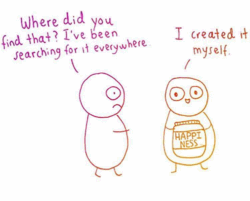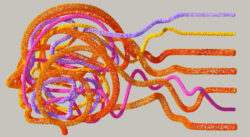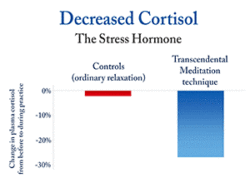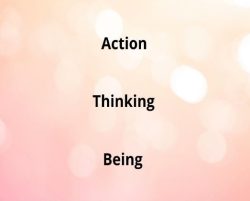November 2022
Dear Friends,
We’re pleased to send you our November TM for Women mini magazine. In this email you’ll find the following articles and news which we invite you to share with your friends:
- Blog posts from October written by women for women
- Articles
- TM in the news
- TM for Nurses meets success at top-tier conference
- November 11th is Veterans Day—women veterans share
- Q&A: How is TM’s reduction of ADHD expressed in the brain
- What women say: an Armenian woman confides her wishes for peace

In case you missed them, below are links to two posts that were published on our blog in October. To see previous posts and to search past posts by topic, please visit our archives at tm-women.org/blog/
Keeping Up with Grandma: How Transcendental Meditation Gives Grandmothers the Advantage

I remember both my grandmothers well. One was forever pulling me up onto her lap and smothering me with kisses and hugs, despite my wriggling. The other most often seemed to stand by the stove and cook and feed me, initiating the habit I have to this day of eating comfort food. But grannies today are neither living their lives nor maintaining their roles in the image of generations past.
Why We Love to Shop (And What That Has to Do With Meditation)

Some call it “retail therapy.”
A study published in the Journal of Consumer Psychology in 2014 revealed that shopping creates an instant increase in happiness. Like I needed scientific research to show me that? In early October, I went east to visit New York City, where I grew up and lived until 2016 when I moved to the Midwest. People often ask what I miss most about New York, and I always repeat the same list: the energy, the culture, the restaurants, and, of course, the shopping.


The Transcendental Meditation Program in October’s News
A Study on Transcendental Meditation in reducing Healthcare Worker Burnout
Excerpts from Medical X press and Duke University School of Medicine News
(Editor’s note: The writers use the generic word “meditation” frequently, but the meditation studied was TM)
Burnout has serious consequences for worker well-being and patient care. Transcendental Meditation may help improve the lives of healthcare workers experiencing burnout, poor sleep, and anxiety symptoms….
Researchers at Duke University School of Medicine studied meditation as a potential stress-reliever in a group of 80 health care workers providing care during the COVID-19 pandemic…suggesting meditation would be an effective strategy to mitigate rising exhaustion and burnout among health care workers, according to the study published Sept. 19 in JAMA Network Open….
Meditation helped bring down acute distress by 5.6 points on the Global Severity Index, a nine-symptom checklist to measure psychological stress, compared to a 3.8-point drop reported in those who received usual treatment…. The practice of Transcendental Meditation had the largest effect on reducing emotional exhaustion.


In mid-October in Philadelphia, Jennifer Bonamer PhD, RN, AHN-BC, NPD-BC and Amy Ruff RN, Director of TM for Nurses presented research on the benefits of the TM technique at the esteemed annual ANCC Magnet conference. A Magnet-designated hospital is a medical facility considered to be the gold standard for nursing practice and innovation.
The presentation included the results of the most recent randomized control trial (a study design that randomly assigns participants into an experimental group or a control group) involving 106 nurses in three Magnet hospitals in Florida. The title of the study is “Transcendental Meditation® for Clinical Nurses’ Well-Being: A Randomized Control Trial during the COVID Pandemic.”
The conference drew 12,000 nurses and nurse leaders from the US and other countries. The degree of interest in TM instruction that nurses expressed for themselves personally was remarkable. Also, many nurse leaders enquired about the possibility of implementing the program in their hospitals for their nursing staff.

Bringing Relief to Women Veterans Through the Transcendental Meditation program
“After the first session of TM, I felt very relaxed and was surprised that my jaw tension suddenly released. After 10 days of practicing TM, I am sleeping better, no longer have nightmares, no longer feel tense during the day, and feel well-rested in the mornings. Once I am finished meditating, I feel like a heavy load has been lifted off of my shoulders. I can read a chapter of my studies without feeling overwhelmed and frustrated and I feel so much happier, focused, and content. I’m determined to get out of my depressive rut and TM is definitely helping!”
Woman Medical Technician, Armed Forces
The Transcendental Meditation program is a proven effective approach to reducing the effects of wartime military trauma. Published research studies on the TM practice show the following to be among the mental, physical, emotional, and behavioral benefits that are relevant to women veterans suffering from PTSD:
- decreased insomnia
- reduced symptoms of PTSD
- decreased high blood pressure
- relief from anxiety and depression
- healthier relationships
- reduced substance abuse
- improved emotional stability
- reduced violent behavior and crime
- Twice as effective as other relaxation techniques for decreasing trait anxiety
“TM was a concept I thought was BS. Nothing that easy would work on a person so high strung like myself. I was leery… until I tried it. IT WORKS!!! The ability to calm my mind and just exist with just me, for just me and only for just me is amazing. It’s like my cobwebs are gone. I can begin my day on a clear note, and I end each day with the same clarity. I’m just amazed how this concept, as I thought of it at first, has transformed my life and I have only been doing it for 3 days. I’m finally excited about things again because I know just how other vets with PTSD can benefit from TM like I have. The difference it will make can’t be bought or downloaded. It comes from within and that is a place I know I’ve missed, a place my PTSD took from me, and TM has given it back.”
Woman veteran of Operation Enduring Freedom, U.S. mission in the Middle East.


Q: What transformations in the brain through the Transcendental Meditation practice help kids (and adults) with ADHD?
Because stress significantly compromises attention and our brain’s key executive functions, such as inhibition, working memory, organization, and mental flexibility, it follows that a technique that reduces stress should also improve cognitive functioning. And learning and practicing the TM technique doesn’t require concentration, controlling the mind, or disciplined focus, all of which are challenges for everyone with ADHD.
According to a report on EurekAlert, an online science news service:
The first study demonstrating TM’s ability to help students with attention-related difficulties was published on December 29, 2008 in Current Issues in Education. It followed a group of middle school students diagnosed with ADHD who meditated twice a day in school. After three months, researchers found over 50% reductions in stress, anxiety, and ADHD symptoms, showing that TM was an effective non-pharmaceutical aid.
ADHD, Brain Functioning, and Transcendental Meditation Practice was the second published study. A random-assignment controlled study published in Mind & Brain, The Journal of Psychiatry (Vol 2, No 1) found improved brain functioning and decreased symptoms of attention-deficit/hyperactivity disorder, ADHD, in students practicing the Transcendental Meditation technique.
During TM, coherence is found across different EEG frequencies. After meditation, the brain utilizes this increased functioning ability to support the performance of a task in an integrated manner.
What indicates ADHD in brain function? Using EEG measurements, the relationship of theta brain waves to beta brain waves can be diagnostic of ADHD. Dr. Joel Lubar of the University of Tennessee demonstrated that the theta/beta ratio can accurately identify students with ADHD. While theta EEG around 4-5 Hz is commonly associated with daydreaming, drowsiness, and unfocused mental states, theta EEG around 6-8 Hz is seen when one focuses on inner mental tasks, such as memory processing, identifying, and associating.
Research on TM and the brain showed there was a 48% reduction in the theta/beta power ratios and a 30% increase in brain coherence after the 6-month period after learning to meditate. In contrast, studies have shown that pharmaceuticals decrease theta/beta power ratios by only 3%, and neurofeedback by only 25%.


The modern Republic of Armenia became independent in 1991 during the dissolution of the Soviet Union. In September of 2022, large-scale clashes erupted on the Armenia-Azerbaijan border. Talks are in progress as part of the current effort to reduce tensions between the two countries.
Rafaela, an Armenian woman who learned the TM technique, expressed her wishes:
“Love and peace are the most important things in this world. They are the most precious feelings in this life. By learning TM, they grew more and more in my life, and it is even passing to my surroundings. By becoming a teacher of this technique, I have a desire to spread more and more the light, the peace that I have inside so that others also could feel it and have it, starting from my close ones to the borders of my homeland. I don’t want wars to arise, so I want to become a teacher of the army of peace, which will provide a bright and peaceful harmonious life in my homeland and the planet.”
Editor’s note: We’d love to hear your comments on the benefits you’ve received from the TM practice. And, with your permission, we’ll publish them here for other women to enjoy. Send your comment to info@tm-women.org








































